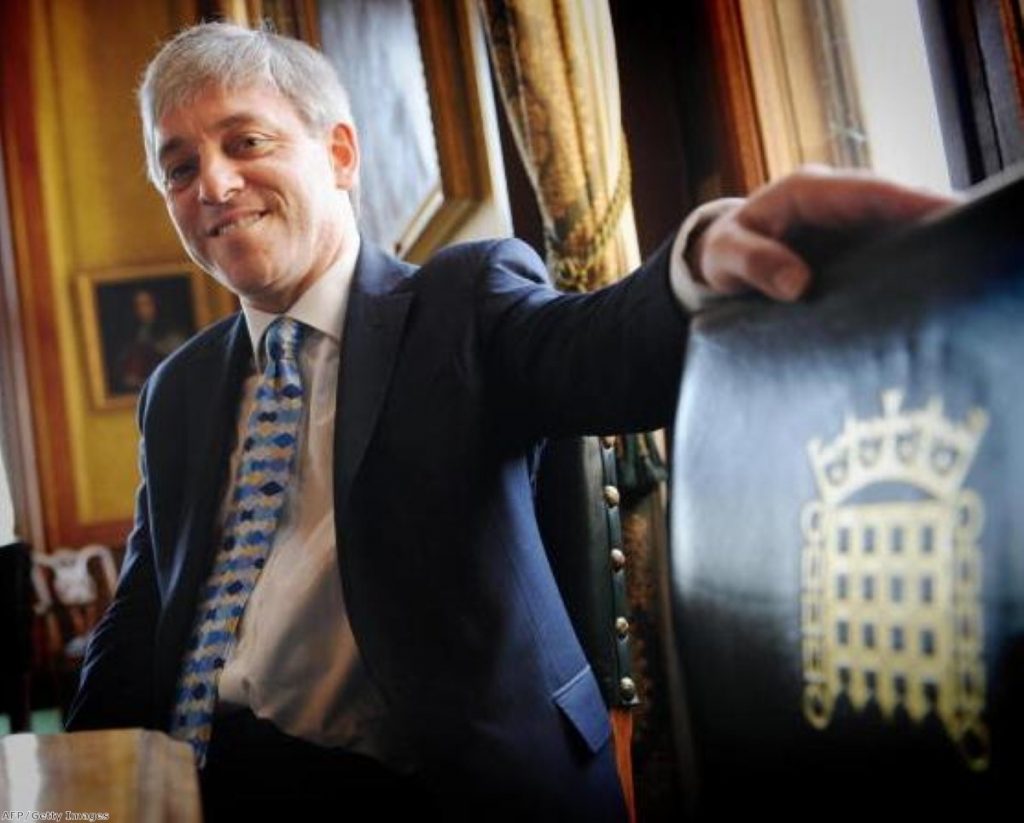Lansley lifts lid on Speaker’s Commons stitch-up
Andrew Lansley is not the kind of man to be indiscreet lightly – which makes his revelations about Speaker John Bercow's behind-closed-doors conduct all the more shocking.
The former leader of the House was a member of the House of Commons Commission which recommended Australian Carol Mills should replace the retiring Robert Rogers. Now he has declared the Commission's process "ill-founded" – and pointed the finger at the Speaker for ruining it.
Mills' attempted appointment has been a disaster for Bercow. Nobody in Westminster knows much about the secretary of the Australian department of parliamentary services. Whatever her merits may be – and as MPs haven't even seen her CV, we don't know what these are – she most certainly doesn't know enough about the extraordinarily complex set of rules and traditions that make up the clerk of the Commons' life.
Over the summer MPs lined up against Bercow and his favoured candidate. By the time parliament returned from its long summer recess there were over 50 signatures on an early day motion demanding a change of heart. The Speaker had little choice but to stick on the brakes. So he resumed the Commons' sittings with a brief statement pausing the appointment process in a bid to secure consensus.


Now Bercow's credibility is being damaged even more. MPs used backbench business time yesterday to table a motion calling for a select committee to be established to sort the matter out. The usual suspects were out in force. So, too, was Lansley.
This was a man, let's not forget, who has been in frontbench politics for many, many years. He was leader of the House until being barged out of office by William Hague in this year's reshuffle. Lansley is a politician who, as he's demonstrated on Thursday mornings, is extremely capable of maintaining the party line.

All of which made his revelations, breaking the conventions of privacy which dominate the atmosphere in the Commons, so significant. Lansley has revealed that Bercow attempted to change the particulars of the job description, in an apparent bid to pave the way for his preferred candidate. In 2011, when Rogers was appointed, it was made clear the clerk should have "detailed knowledge of the procedures and practices of this House". Lansley explained:
"Mr Speaker sought to replace 'detailed knowledge' with 'awareness'. By way of compromise, the word 'detailed' was left out. But the selection panel was not therefore asked to subject candidates to the same test as in 2011. The process for appointment was, therefore, ill-founded, and any internal candidate with the procedural and practical knowledge but less opportunity to be a chief executive of a large organisation was at a disadvantage."
It's not enough, in Lansley's view, for the process to be paused. He wants it scrapped completely. This is a damning indictment of the Speaker, a man who Lansley was obliged to work closely with throughout his time leading the Commons.
"Andrew Lansley's revelation makes clear that there are still significant questions to be asked," says Jesse Norman, the Conservative backbencher who led yesterday's debate. These questions, in his view, are "not merely about the qualifications of Ms Carol Mills, but also about the process by which she was selected".

He is right. There is the bald fact of Bercow attempted to change the job description. And then there is the way in which the panel came to agreement. The Speaker has repeatedly talked of the consensus with which his panel operated. But it is now clear, from Lansley's revelations, that the panel was not unanimous in its recommendation of Carol Mills.
Another of its members, the shadow leader of the House Angela Eagle, appeared keen in yesterday's debate to muddy the waters on exactly this point. David Heath, the Liberal Democrat MP and former deputy leader of the Commons, quizzed her as he sought to "understand the precise process".
Heath asked: "Did the panel agree before the interview process the job description it judged against, or was that presented as a fait accompli?"
Eagle replied: "My memory is that we agreed it. It is important that I do not go into too much detail on the floor of the House, and essentially in public, about what happened in a process that resulted in agreement. As I have said, I am happy that the process was open and fair, and that it came to a conclusion by consensus."
A 'consensus' with which Lansley, then the leader of the Commons, disagreed vehemently does not sound like much of a consensus at all.

